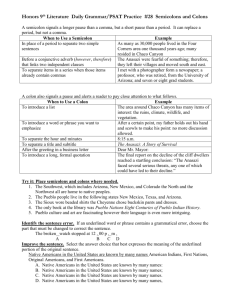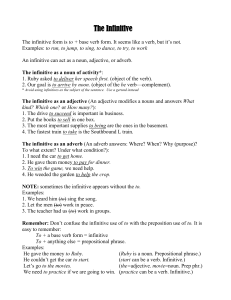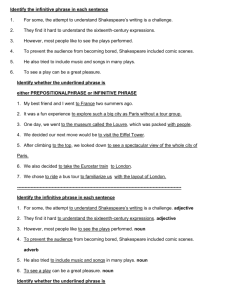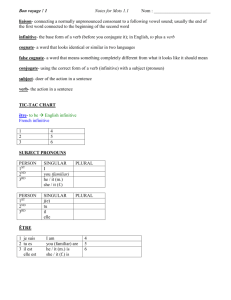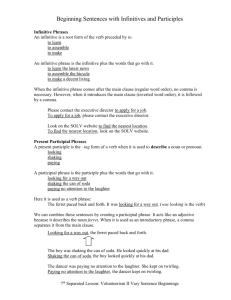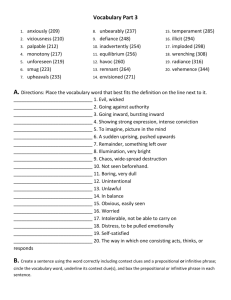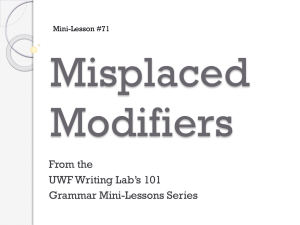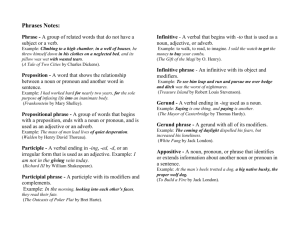Infinitives: Grammar Lesson & Worksheet
advertisement
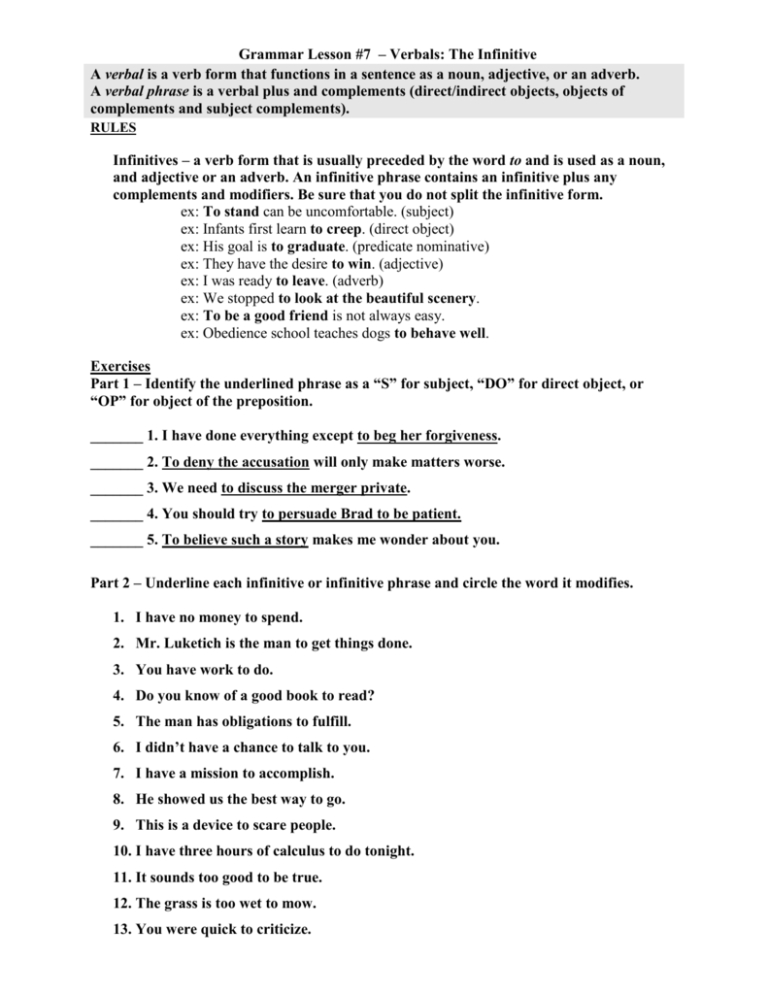
Grammar Lesson #7 – Verbals: The Infinitive A verbal is a verb form that functions in a sentence as a noun, adjective, or an adverb. A verbal phrase is a verbal plus and complements (direct/indirect objects, objects of complements and subject complements). RULES Infinitives – a verb form that is usually preceded by the word to and is used as a noun, and adjective or an adverb. An infinitive phrase contains an infinitive plus any complements and modifiers. Be sure that you do not split the infinitive form. ex: To stand can be uncomfortable. (subject) ex: Infants first learn to creep. (direct object) ex: His goal is to graduate. (predicate nominative) ex: They have the desire to win. (adjective) ex: I was ready to leave. (adverb) ex: We stopped to look at the beautiful scenery. ex: To be a good friend is not always easy. ex: Obedience school teaches dogs to behave well. Exercises Part 1 – Identify the underlined phrase as a “S” for subject, “DO” for direct object, or “OP” for object of the preposition. _______ 1. I have done everything except to beg her forgiveness. _______ 2. To deny the accusation will only make matters worse. _______ 3. We need to discuss the merger private. _______ 4. You should try to persuade Brad to be patient. _______ 5. To believe such a story makes me wonder about you. Part 2 – Underline each infinitive or infinitive phrase and circle the word it modifies. 1. I have no money to spend. 2. Mr. Luketich is the man to get things done. 3. You have work to do. 4. Do you know of a good book to read? 5. The man has obligations to fulfill. 6. I didn’t have a chance to talk to you. 7. I have a mission to accomplish. 8. He showed us the best way to go. 9. This is a device to scare people. 10. I have three hours of calculus to do tonight. 11. It sounds too good to be true. 12. The grass is too wet to mow. 13. You were quick to criticize. 14. You are silly to think that. 15. Mickey was too busy to talk to me. Part 3 – Rewrite each sentence fixing the split infinitive. 1. He seemed to instinctively know the way. 2. I don’t want to ever see him again. 3. We need to constantly be on guard. 4. I want to always remember this moment. 5. It is important to carefully read the directions before beginning. 6. He was forced unwillingly to go. 7. She is scheduled to shortly arrive. 8. The food began to quickly disappear. 9. The color began to suddenly change. 10. I know Ned is going to strongly react to this news.

